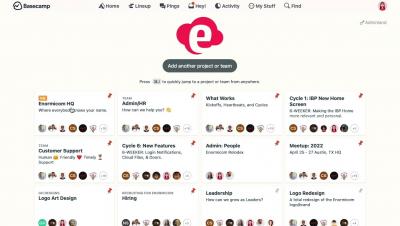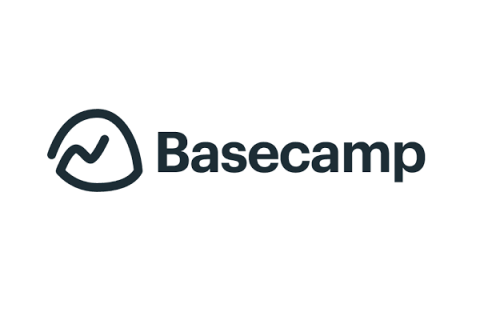Teams | Collaboration | Customer Service | Project Management
Basecamp
How to use the HQ, Teams and Projects to manage any part of the company
How to stop getting notifications from a particular project or team
Options, Not Roadmaps
Since Shape Up came out, many people asked some version of this question: I understand you make bets six weeks at a time. But how do you plan in the longer term? Don’t you have some kind of a roadmap? The short answer is: no. We don’t have roadmaps. We think about what to do at the timescale larger than single bets, but we do it in a different way. No matter how you try to hedge it, a roadmap communicates a plan—a series of commitments—to other people.
How Basecamp Became a 100% Remote Company
Moving is never fun. It’s bad enough when it’s your stuff, but ten years of stuff at an office you only spent two years in can be daunting! I’m Navid, and part of my job at Basecamp the last two years has been taking care of our office in Chicago. As folks outside of Basecamp learned of our impending office closure, I began to get some questions. The most common being “what did you do with the stuff?
Remote work is a platform
Back in the mid-90s, just as Netscape Navigator was giving us our first look at what the visual internet could be, web design came in two flavors. There was the ultra basic stuff. Text on a page, maybe a masthead graphic of some sort. Nothing sophisticated. It often looked like traditional letterhead, or a printed newsletter, but now on the screen. Interactions were few, if any, but perhaps a couple links tied a nascent site together. And there was the other extreme.
Take a tour of HEY
Celebrating 3 million accounts (fewer)
We recently deleted over three million accounts across all our apps. This was the answer to a question we asked ourselves last year: what should we do about accounts that weren’t cancelled, but weren’t used either? Should we keep hold of their data forever? That felt wrong – we promise to delete data when you cancel your account. Keeping so much data around felt like we weren’t living up to that promise, and felt like a liability, so we decided to do something about it.
Employee-surveillance software is not welcome to integrate with Basecamp
We’ve been teaching people how to do remote work well for the better part of two decades. We wrote a whole book about the topic in 2013, called REMOTE: Office Not Required. Basecamp has been a remote company since day one, and our software is sold as an all-in-one toolkit for remote work. Yeah, we’re big on remote work! So now that COVID-19 has forced a lot of companies to move to remote work, it’s doubly important that we do our part to help those new to the practice settle in.








